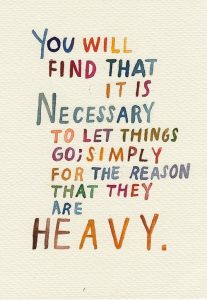Dealing with Disappointment
By Cindra Kamphoff, Ph.D.
 When you play sports or compete in some way, it’s inevitable that you will deal with disappointment. It happens to all of us.
When you play sports or compete in some way, it’s inevitable that you will deal with disappointment. It happens to all of us.
Last winter, for example, I trained hard for the spring running season. I wanted to set personal record times—PRs—in both the half and full marathon. So I spent hours on the treadmill at the Y and running outside even in the cold weather. I had worked hard and was ready to nail my next half marathon and marathon.
Neither happened for me last spring, which was indeed disappointing to me. But I kept pushing on and striving to be faster and better. Why?
I know that we waste mental and physical energy when we are disappointed and when we focus on our failures. I know that mentally tough athletes use disappointments to help them reach their ultimate goals, focusing on how it makes them a stronger person and smarter performer. I also know that successful athletes are more likely to experience positive emotions rather than guilt, sadness or frustration — all emotions that can be associated with disappointment.
I also realized quickly after those two races that my disappointment was tied to the fact that I was overly attached to one specific outcome — a PR. Not surprising, my PR came later in the summer when I was enjoying the run and wasn’t forcing a fast time.
My reflection on this experience last spring helped me focus on strategies other runners—or other athletes or performers of any kind—could use to deal with disappointment. Even if you may not be disappointed right now, cut out this list to refer to next time you feel upset after not reaching your goals. Or better yet, give this to a friend who may be disappointed about a poor race, game or other type of performance.
- Let yourself be upset—but limit the time you allow yourself to feel that way. You could give yourself a few hours, but don’t let yourself be mad for longer than 24 hours. Focusing on your disappointment for too long can be destructive and have a negative impact on your confidence.
- Consider what you learned from the performance. See the disappointment as an opportunity for growth that will fuel you for your next race or performance.
- Celebrate one or two things that went right during the performance and focus on those things. Play those things through your mind every time you think about the event. This helps build your confidence.
- Remember that your disappointment actually shows your passion—and that passion can propel your forward and motivate you toward your goals. For me, this is continuing to focus on why I love running so much.
- If you can’t seem to shake your disappointment, try something new. A marathoner, for example, may try training for an ultra or cutting down their racing distance to a 10K.
So many of us want things to be perfect. Yet few of us rarely have a perfect performance. It’s better to work towards excellence, not perfection. The first step in working towards excellence is enjoying what you do. You are more likely to perform up to your potential when you are relaxed and having fun.
Remember that in each situation or performance you experience, you have two options. One option builds up your self-confidence; the other can drag you down. Focusing on disappointment can have a negative impact on future performances. Instead, when disappointment hits, try to have a short memory.
The choice is yours. What will you decide?
